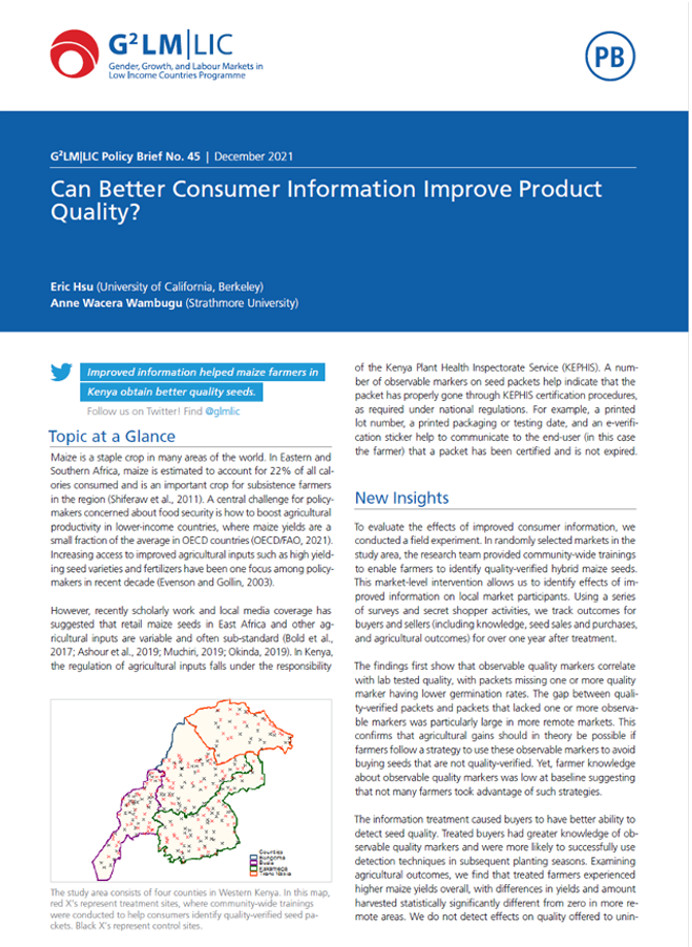Maize is a staple crop in many areas of the world. In Eastern and Southern Africa, maize is estimated to account for 22% of all calories consumed and is an important crop for subsistence farmers in the region (Shiferaw et al., 2011). A central challenge for policymakers concerned about food security is how to boost agricultural productivity in lower-income countries, where maize yields are a small fraction of the average in OECD countries (OECD/FAO, 2021). Increasing access to improved agricultural inputs such as high yielding seed varieties and fertilizers have been one focus among policymakers in recent decade (Evenson and Gollin, 2003).
However, recently scholarly work and local media coverage has suggested that retail maize seeds in East Africa and other agricultural inputs are variable and often sub-standard (Bold et al., 2017; Ashour et al., 2019; Muchiri, 2019; Okinda, 2019). In Kenya, the regulation of agricultural inputs falls under the responsibility glmlicof the Kenya Plant Health Inspectorate Service (KEPHIS). A number of observable markers on seed packets help indicate that the packet has properly gone through KEPHIS certification procedures, as required under national regulations. For example, a printed lot number, a printed packaging or testing date, and an e-verification sticker help to communicate to the end-user (in this case the farmer) that a packet has been certified and is not expired.
